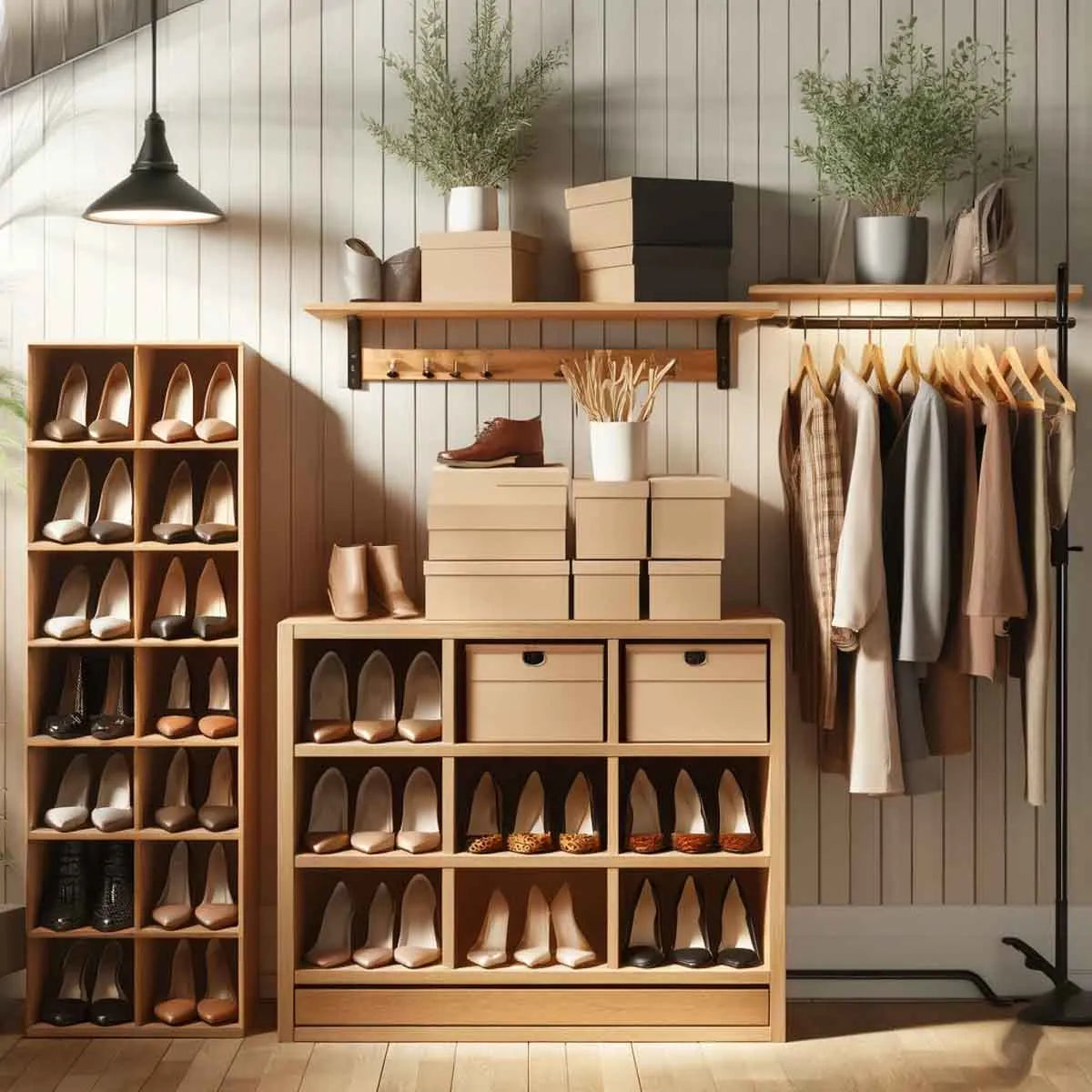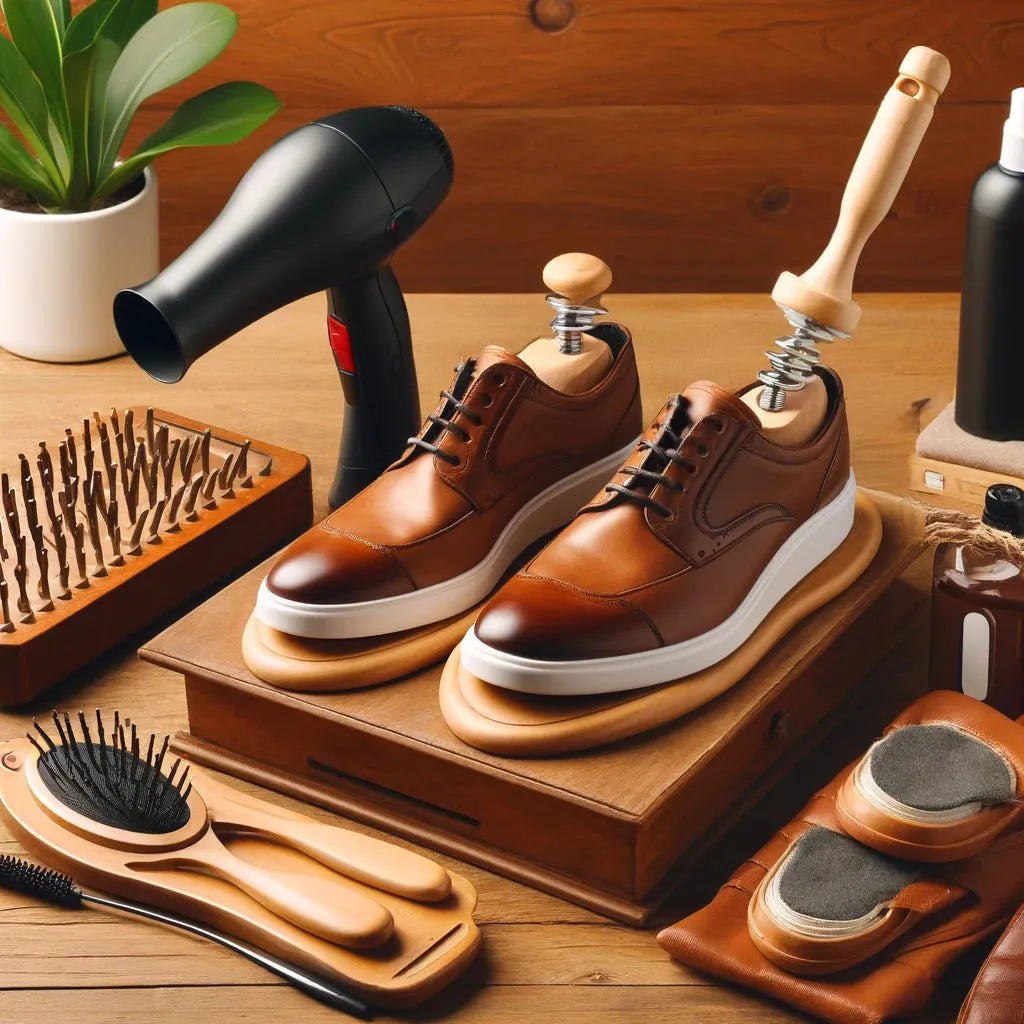WINTER SALE NOW ON
WINTER SALE NOW ON
Mens
Ensuring Perfect Fit: How to Tell if Your Shoes Fit Correctly
3 min read

The Importance of a Proper Shoe Fit
A proper shoe fit is essential not only for comfort but also for the health of your feet. Ill-fitting shoes can lead to a myriad of problems such as blisters, bunions, and even long-term posture issues. Understanding how to check for the right fit can save you from discomfort and foot health issues down the road.

Key Signs of a Properly Fitting Shoe
Here are the critical indicators to determine if your shoes fit correctly:
-
Toe Room: Your toes need room to move! Ensure there's about a thumb's width of space between your longest toe and the end of the shoe. This space allows your foot to flex on impact as you walk, which is vital for proper foot function.
-
Snug Heel: A well-fitting shoe should securely hold your heel in place. If your heel slips out easily, not only is it annoying, but it's a sign that the shoes might be too big, or the fit isn't right for your foot type.
-
No Pressure Points: When trying on shoes, they should feel comfortable right away. If you feel pressure on any part of your foot or if the shoes pinch, they're not the right fit. Shoes generally don't stretch enough to resolve these issues.
-
Width Fit: The width of the shoe is just as important as the length. Your feet shouldn't spill over the sides nor should the shoe feel constricting. Each part of your foot should sit comfortably within the shoe’s width.
-
Arch Support: The shoe should match the natural arch of your foot. Incorrect arch support can lead to foot fatigue and pain. Make sure the arch of the shoe feels supportive and comfortable as you walk.
Trying On Shoes: Best Practices
To ensure you pick the right fit every time, keep these tips in mind:
-
Shop in the Afternoon: Feet naturally expand throughout the day. Shopping for shoes in the afternoon ensures a better fit, as your feet will be at their largest.
-
Wear Appropriate Socks: Always try on shoes with the type of socks you intend to wear with them. This is especially important for athletic or speciality shoes.
-
Walk Around: Don’t just stand there—take a walk! Walking around the store gives you a better idea of how the shoe will perform in everyday activities.
FAQs About Shoe Fit
-
Q: What if only one shoe fits well and the other does not?
A: It's common to have one foot slightly larger than the other. Always fit shoes to your larger foot. -
Q: Can inserts help if a shoe is too big?
A: Yes, inserts can help make a shoe fit better. However, they are more of a fine-tuning tool rather than a solution for a significantly poor fit. -
Q: How often should I re-evaluate my shoe size?
A: It’s wise to have your feet measured once a year. Feet can change over time due to factors like ageing, weight changes, or pregnancy.

In Conclusion: Step Comfortably with the Right Fit
Finding the right shoe fit is crucial for both comfort and health. By understanding the signs of a good fit and using these tips when shopping, you can ensure your shoes support your feet just as they should. Remember, a little attention to fit goes a long way in taking good care of your feet. Here's to happy, healthy stepping in shoes that fit like a glove!
Leave a comment
Also in Shoe Styling

Discover the Unique Appeal of Wonders Shoes: Comfort, Durability, Style
2 min read

Extend Your Shoe Life: Practical Tips to Make Your Shoes Last Longer
3 min read 1 Comment
Subscribe
Sign up to get the latest on sales, new releases and more …





